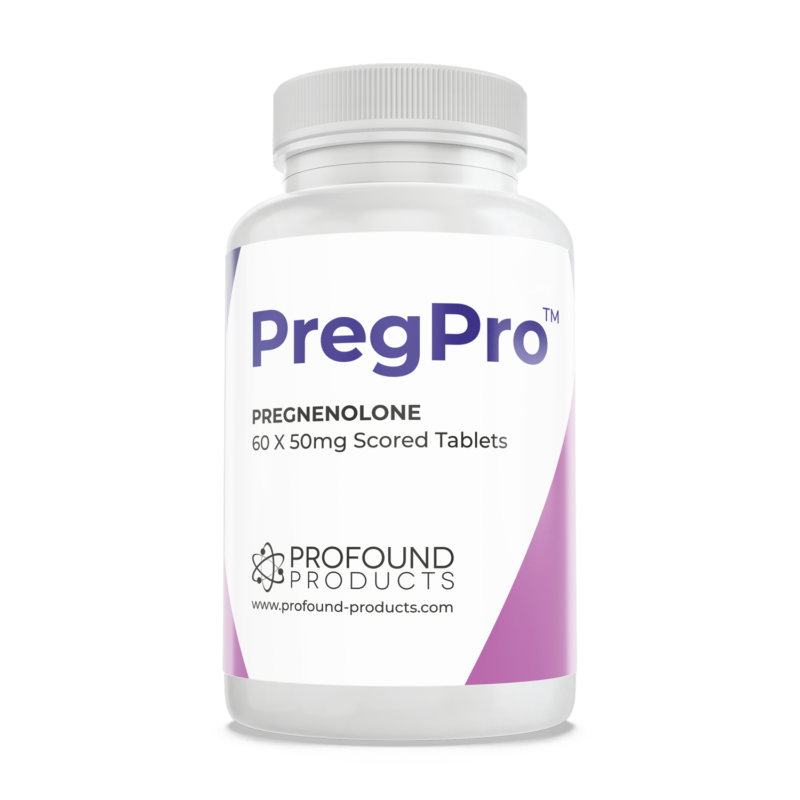Reducing Stress And Increasing Productivity With Pregnenolone
Pregnenolone is a natural; body produced metabolite made from cholesterol. It is synthesized inside the mitochondria, the tiny “power plants” (up to 1000’s per cell) found in each cell. Pregnenolone is the basic precursor, or starting raw material, for the production of ALL the human steroid hormones, including DHEA, progesterone, estrogen, testosterone, cortisol and aldosterone, but pregnenolone is not itself steroid hormone.
Pregnenolone has been studied extensively since the 1940’s, when it was used both experimentally and medically. Experiments conducted in the 1940’s and 1950’s found pregnenolone to increase productivity and reduce the stress of factory workers, and to be an excellent anti-inflammatory in conditions such as, arthritis and allergies. Pregnenolone was phased out of medical use; yet ironically pregnenolone is radically safer and more versatile than the specific steroid hormones which replaced it!
Pregnenolone is safe even at gram (1000mg) dosages, a claim no steroid hormone can make.
Several experiments conducted with mice in the 1990’s have reopened interest in pregnenolone yet these experiments reveal just the “tip” of the ice-berg, while also revealing important clues to pregnenolone’s action. In these recent experiments, mice were trained to run mazes to avoid electric shocks, pretreated with either pregnenolone or steroid hormones. A week later they were tested for their maze memory, and the pregnenolone treated rats prevailed. Any serious stressor (getting shocked, here) elicits the release of the adrenal stress steroid hormone- cortisol.
Cortisol is a stress hormone helpful in modest amounts, but toxic at higher levels. Both acute and chronic stress release cortisol and excess cortisol can damage the hippocampus, a mid-brain region essential to memory formation and retrieval. (This is only one of the many “dark side” effects of excess cortisol).
The mice experiment strongly suggests that pregnenolone is able to blunt the normal memory damaging effects of excess stress related cortisol.
Pregnenolone shows many of the benefits of cortisol, it reduces allergic reactions, lessens arthritis inflammation and produces a relaxing and mildly euphoric “stress buffer effect”, without any of the negative side effects of cortisol.
Pregnenolone improves mood, and has a mild antidepressant effect at doses of 50mg to 200mg per day, and also improves energy levels by protecting our energy producing mitochondria from toxins, which would otherwise damage the mitochondria.
Pregnenolone also enhances the activity of the cytochrome P450 detoxifying enzymes, which help our cells (especially the liver and brain) to detoxify poisons of all sorts, whether from the outside world, or our own metabolically produced toxins. Pregnenolone is generally safe and effective at doses of 25mg to 200mg per day.
The body’s own production of pregnenolone is reduced with aging, stress, depression, hypothyroidism and toxin exposure. The work of Ray Peat Ph.D., has shown that pregnenolone may be a general “anti-stress” metabolite. However this may not always be present in our bodies at optimal levels, precisely because it may be used up in producing all the steroid hormones, not leaving enough to fulfill its stress buffer role. Hence the need for supplementation.
Anyone taking medically prescribed steroid hormones should NEVER try substituting pregnenolone for part or all of their steroid dosage, unless supervised by their prescribing physician.
